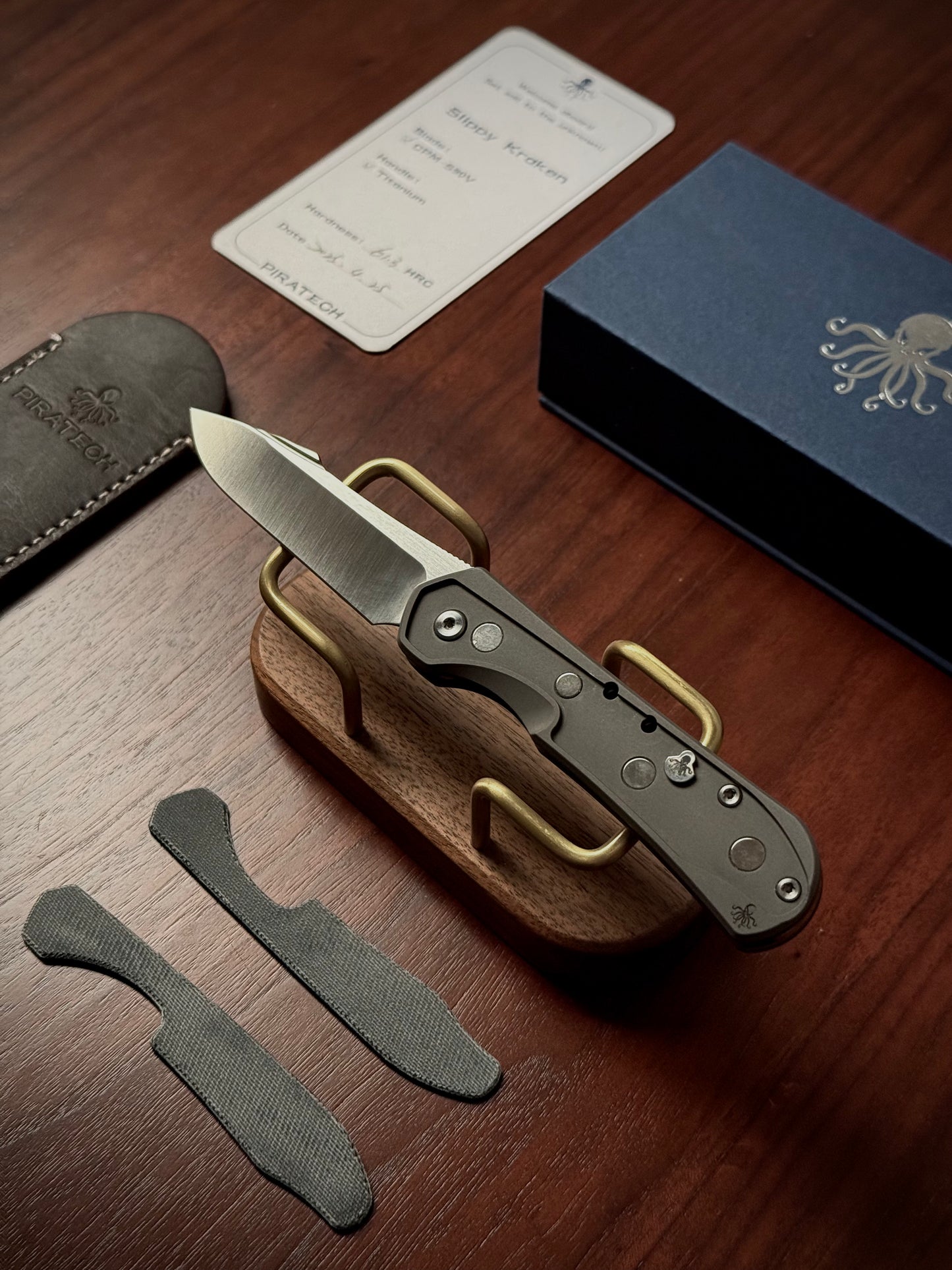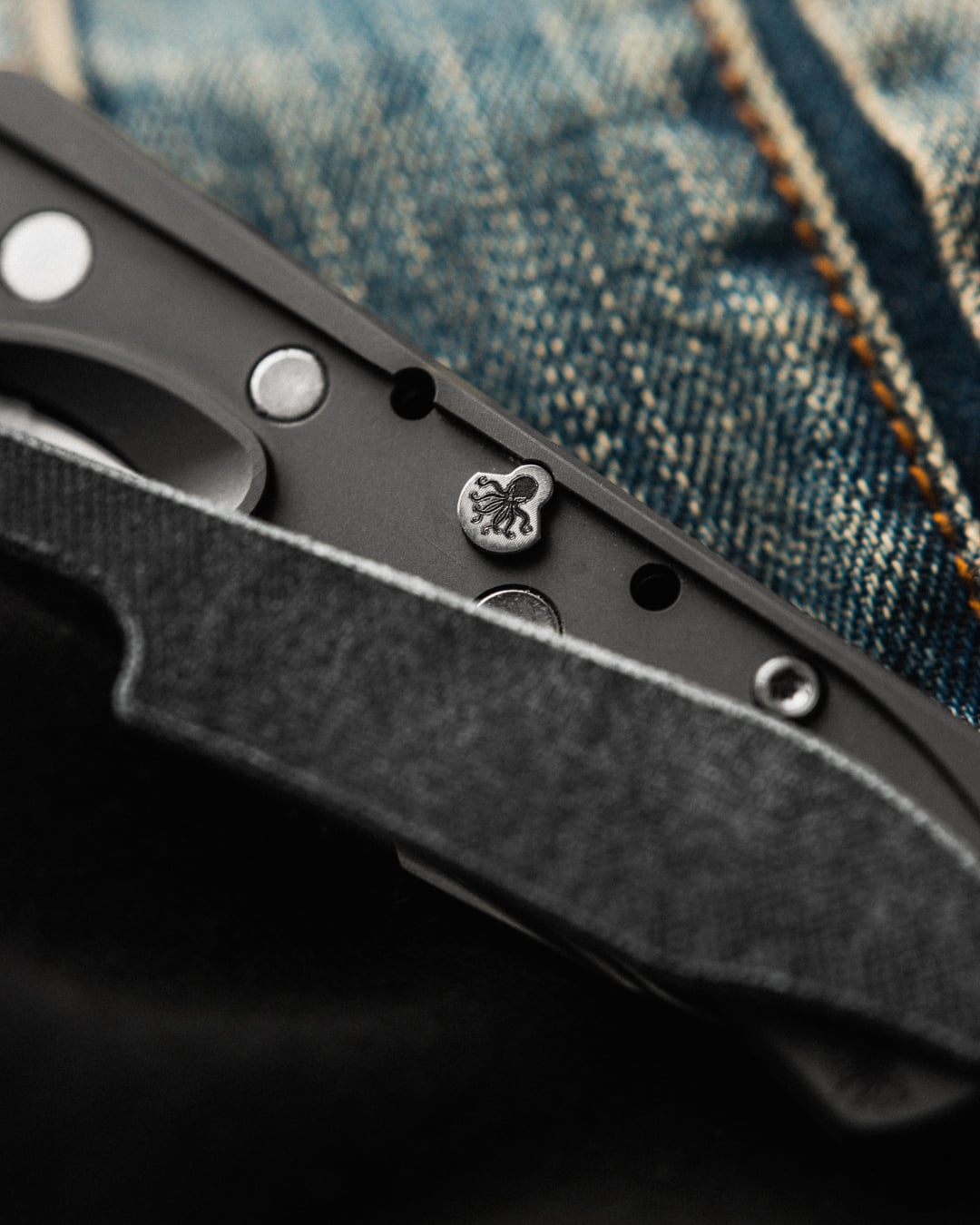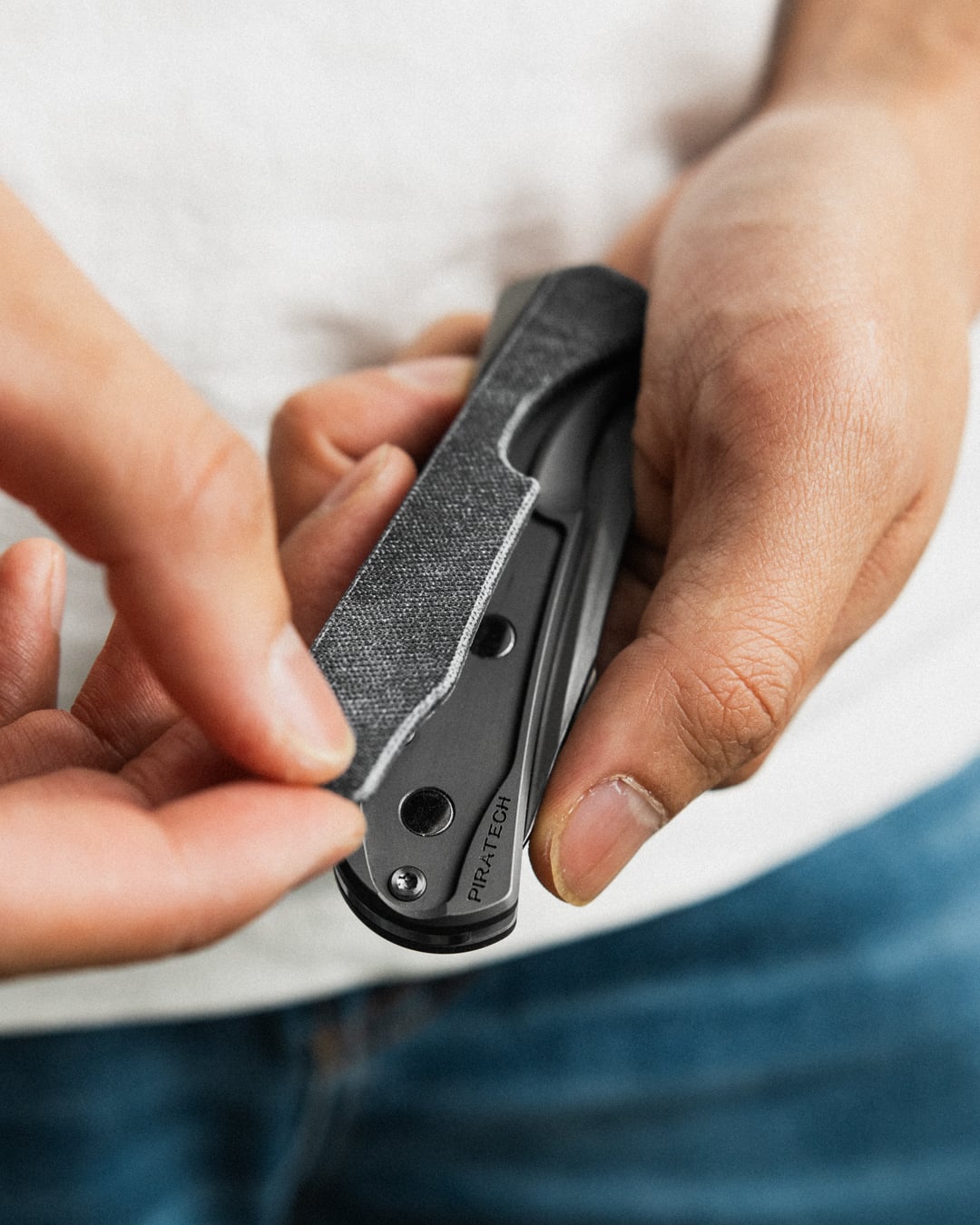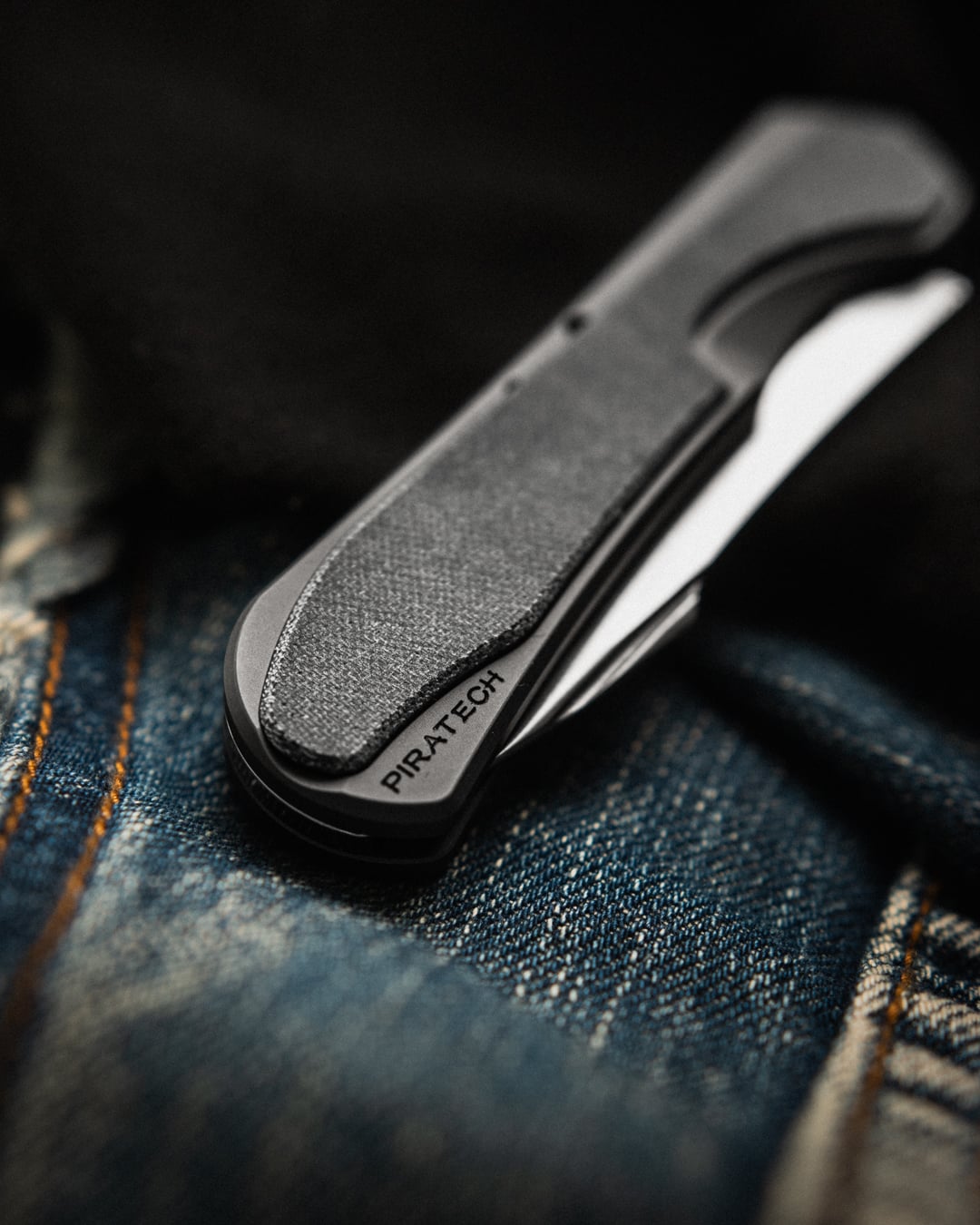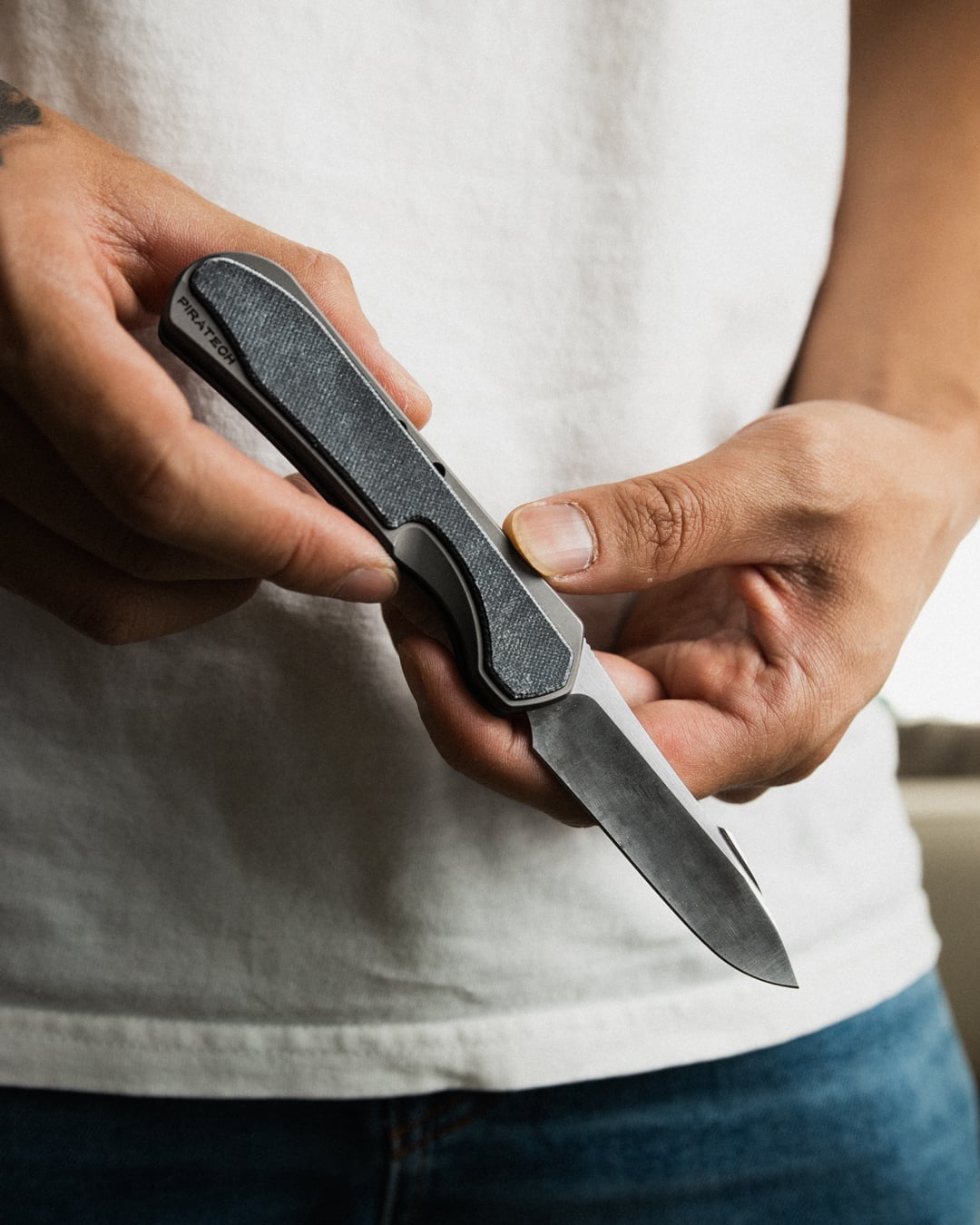
Pocket knives history
Piratech Knivessail with your friends
Origins of Pocket Knives
- Early Designs:
- Cultural Significance:
- Evolvement Over Time:
- Key Developments:
The concept of portable blades dates back centuries to the rise of ancient civilizations. Historically, small folding knives were crafted by blacksmiths in the Roman era, featuring one or two sharp blades that folded into a handle for easy carrying.
Throughout history, pocket knives held multifaceted cultural significance. They were symbols of craftsmanship, self-sufficiency, and preparedness. In many societies, gifting a pocket knife signified trust and camaraderie.
From the classic peasant knife to the iconic Swiss Army Knife, pocket knives evolved significantly. The industrial revolution in the 19th century facilitated mass production, leading to diverse designs and functionalities to meet various needs.
In the 20th century, key developments like the introduction of stainless steel, locking mechanisms for safety, and specialized tools such as bottle openers shaped modern pocket knives. Contemporary designs cater to outdoor activities, EDC (Everyday Carry), and survival scenarios.
Evolution of Pocket Knife Design
- Steel: The transition from traditional carbon steel to modern stainless steel revolutionized pocket knife durability and maintenance.
- Handle Materials: Evolution from wood to modern materials like titanium, G-10, and carbon fiber, enhancing both aesthetics and performance.
- Locking Mechanisms: Introduction of mechanisms such as liner locks, frame locks, and compression locks for enhanced safety and function.
- Multi-Tool Integration: Incorporating functionalities like screwdrivers, bottle openers, and scissors, making pocket knives versatile everyday tools.
Role of Pocket Knives in Different Cultures
- The Indigenous Peoples of North America: Pocket knives were essential tools for Native American tribes. Used for hunting, cooking, and crafting, they held symbolic value in rituals and ceremonies.
- Japanese Culture: In Japan, the traditional Higonokami pocket knives symbolize craftsmanship and are passed down through generations as family heirlooms.
- European Traditions: Pocket knives played a crucial role in European daily life, from the Swiss Army Knife to the Laguiole knife in France, reflecting regional craftsmanship and utility.
- The Maasai Tribe in Africa: Among the Maasai people, carrying a pocket knife signifies readiness to defend cattle from predators, showcasing bravery and responsibility within the community.
Notable Moments in Pocket Knife History
- Evolution in Utility: Throughout history, these versatile tools have transitioned from mere cutting instruments to vital aids in warfare, survival, and daily life. From the early Roman folding knives to modern Swiss Army knives, their functionality has adapted to meet evolving needs.
- Centuries of Exploration: Explorers like Lewis and Clark carried pocket knives on their famed expeditions, showcasing their reliance on these tools for survival and navigation in uncharted territories. The compact nature of pocket knives made them indispensable for explorers facing unknown challenges.
- Iconic Models: The Opinel knife, originating in 1890, exemplifies the design and functionality that have stood the test of time. Its simple yet effective locking mechanism and wooden handle make it a timeless classic favored by generations.
- Influential Figures: From Bear Grylls to Anthony Bourdain, numerous celebrities and adventurers have extolled the virtues of pocket knives. These endorsements, alongside their practical use in movies and TV shows, have cemented the cultural significance of these tools.
From their humble origins to the diverse designs seen today, the evolution of pocket knives provides a unique glimpse into various cultures' histories. These versatile tools have played pivotal roles in different societies and hold special significance in numerous notable historical moments. As we explore the intriguing world of pocket knives, we uncover not just a tool but a symbol of innovation, craftsmanship, and cultural heritage that continues to fascinate enthusiasts worldwide.


